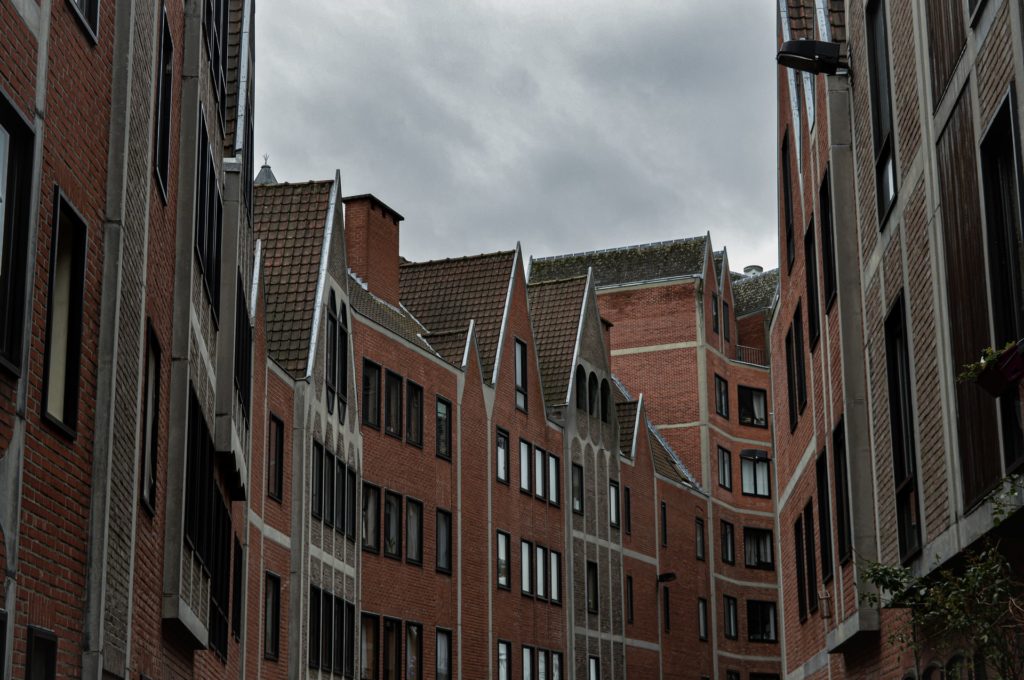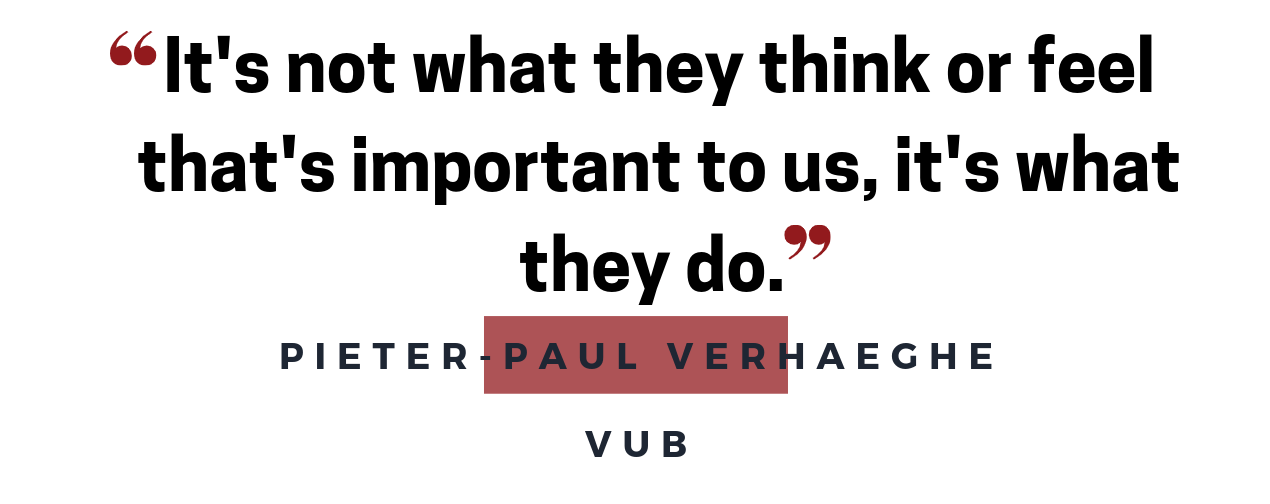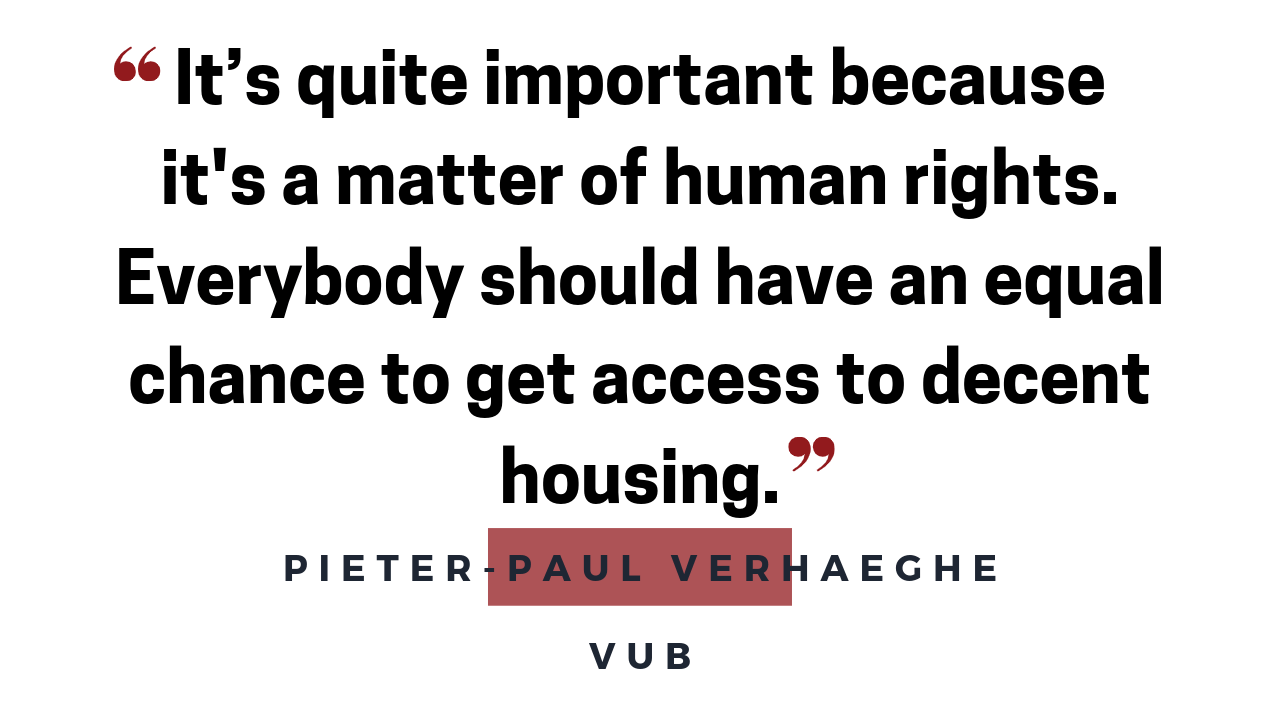Recent VUB research showed structural discrimination against ethnic minorities, wheelchair users, and blind people with assistance dogs when it comes to finding housing in the Leuven rental market.
“As a victim of discrimination, it's often hard to provide solid evidence that you’re discriminated against,” VUB’s Prof. Pieter-Paul Verhaeghe, who co-led the research, told The Brussels Times.
When applicants don’t hear back from landlords or real estate companies about properties they’d like to potentially rent, it isn’t always clear whether the decision to not be invited for a viewing was made due to discriminatory factors like ethnicity or having a disability.
“It's never obvious,” explained Verhaeghe. “They will never say, ‘I don't want you.’ The most common way is the most subtle - it's to just not reply to the rental candidate with a foreign name, or to say that the property has already been rented.”
In Search Of Evidence
In order to find concrete evidence, researchers investigated discrimination by real estate agents and private landlords using 1,973 academic correspondence tests between February 2020 and February 2021.
Such tests have been increasingly conducted in the United States since the '90s and came into use throughout Europe only after the turn of the century.
Researchers reply to property listings on places like Immoweb using two fake tenant profiles: one with a characteristic that could result in discrimination (for example, a Moroccan or Congolese name, a wheelchair, or a service dog), and a control profile featuring a Belgian name, with no wheelchair or service animal.
The account of a fictitious foreigner, wheelchair user, or blind person would apply first. That way, if the control account received an invitation to view a property and the other one didn’t, the discriminating landlord couldn’t claim to have only been responding on a first-come, first-serve basis.
By doing things in this order, “the foreign name actually has a bit of an advantage when it comes to getting an invitation,” Verhaeghe said. The profiles were otherwise identical, and researchers observed to what extent the fictitious candidates were invited to view the listed properties.
“You can compare the reactions of the landlords to both candidates. If the person with the Belgian name is systematically invited more, you have solid evidence,” said Verhaeghe.
What they found was that candidates with Moroccan names are least likely to be invited to view a property, with a net discrimination rate of 35%.
Male candidates with a Nepalese or Congolese name were offered viewings less than men with a Belgian name, with discrimination rates of 24% and 19% respectively.
Related News
- Police in Belgium have 'insufficient insight into racism and illegal violence'
- Racism against Asians in Belgium is ‘an underestimated problem’
“It's not that we look at the intention of a real estate agent or a landlord,” Verhaeghe said. “They do not need to have the intention to discriminate. We just look at the behaviour.”
“It's not what they think or feel that's important to us, it's what they do. And what we do find in hundreds of these tests is a common pattern, and that pattern is systematic discrimination.”
The researchers also examined, for the first time in Belgium, the effect of a Belgian first name and a Moroccan surname. These candidates with mixed names were also still discriminated against, with a net discrimination rate of 15%.
In many cases, said Verhaeghe, real estate companies are explicitly asked to discriminate on behalf of their property-owning clients, who ask them to have their apartment or home rented, but “not to a migrant” or specific ethnic minority.
Denying "Reasonable Adjustments"
Wheelchair users had the highest discrimination rate at 50%.
Applicants who use a wheelchair often ask to be allowed – if necessary – to make “reasonable adjustments” to the house at their own expense, for example installing a stairlift or lowering light switches.
Such reasonable adjustments are protected by law and ensure that people with physical disabilities can fully participate in society, but the analysis showed that real estate agents and landlords often don’t allow them.
“Sometimes there were good practical reasons for such a refusal, but often it was due to ignorance about these reasonable adjustments or simply gratuitous refusal of them without reason,” said Billie Martiniello, who co-led the research with Verhaeghe.
Blind and visually impaired people with a service dog were also offered viewings less often, with a net discrimination rate of 33%.
“However, this is entirely due to the assistance dog,” said Verhaeghe. “When they don’t mention their guide dog, they are no longer invited to fewer viewings.”
Refusing a trained assistance dog is prohibited by law.
A Matter Of Human Rights
The Leuven study isn’t the first of its kind that the researchers have done. They’ve looked into housing discrimination in cities and municipalities all across Belgium and generally find similar results.
“It's really important to check and address this unequal access to housing, and if it's unequal - which is actually the case in most parts of Belgium - you should do something as a policymaker,” Verhaeghe said.
What Leuven plans to do is roll out training for landlords and real estate companies, intended to educate them about implicit bias. They’ll also make efforts to raise awareness about the existing discrimination laws many are violating, such as those related to service dogs and reasonable adjustments.
If those don’t curb the issue of discrimination within a few years time, they’ll look to legal sanctions.
“It’s quite important because it's a matter of human rights. Everybody should have an equal chance to get access to decent housing,” said Verhaeghe. “We know that if you don't have decent housing, you do less well in the labour market and education, and your health outcomes are less good.”
“It’s about human rights and it's about life chances. In these times of the Covid-19 pandemic, having decent housing is very important.”
The study had to be stopped twice as a result of the coronavirus pandemic (from 16 March to 31 August 2020 and from 1 November to 31 December 2020), when lockdowns forbade physical viewings of rental properties.
Previous research had already shown that the first lockdown led to increased discrimination against people with a Moroccan name in the short term.
“For each of the minority groups, the discrimination rates were somewhat higher among private landlords than among professional real estate agents, but the differences were never significant. So in contrast to many other cities, real estate agents in Leuven are not doing better than private landlords,” said Martiniello and Verhaeghe.
The research was carried out with the University of Antwerp and KU Leuven and commissioned by the City of Leuven with Lies Corneillie (councillor for housing and equal opportunities) and Lalynn Wadera (councillor for diversity).



